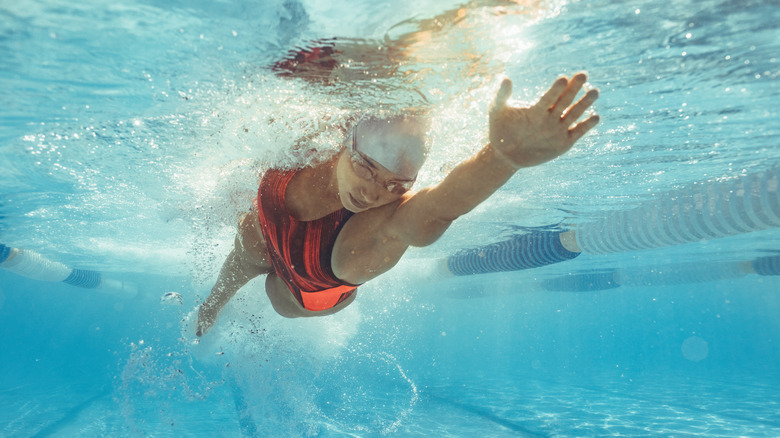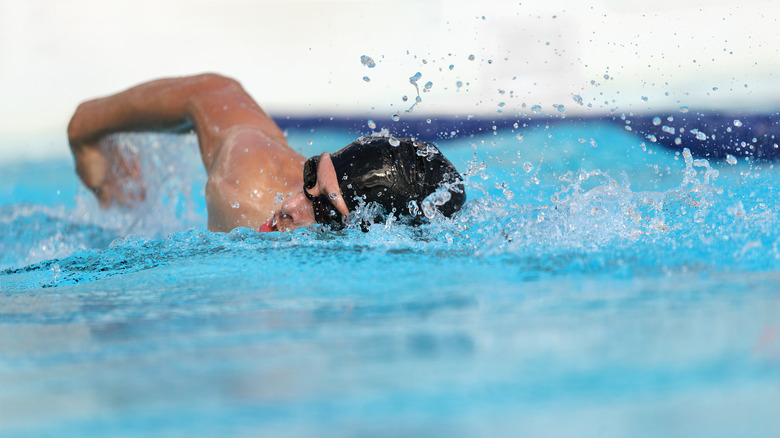What It Really Means When You Get A Headache After Swimming
The summer season has many of us spending lots of time in the water. If you have recently been swimming, you may have noticed an increase in headaches. You likely don't have to be too alarmed, but here's what you should know to prevent or treat this pesky problem.
Swimming can be an intense workout because of its aerobic and sometimes anaerobic nature, in that if you are "sprinting" underwater, your body goes without oxygen (via Chuze Fitness). To avoid getting headaches from lack of oxygen, be mindful of your breathing while swimming (via Aquamobile Swim). Keep your breathing relaxed by taking a breath every stroke or two. Also be aware that you're more likely to develop a headache if your exercise is strenuous, or if you're swimming in hot temperatures or at high altitudes.
You can also experience an external compression headache from your goggles or swim cap being too tight. These headaches should subside after you take off your swim gear. Another goggle-related headache issue is a supraorbital neuralgia, which is caused by nerve spasms at the center of the forehead. This condition requires more invasive treatment with a local anesthetic, or a procedure called nerve ablation that uses an electrical current to heat the area around the nerve tissue.
How you can swim without getting headaches
You may not think of an ear infection being the case of a headache, but headaches are one of the top symptoms of swimmer's ear (via VeryWell Health). The outer ear infection occurs when water gets trapped in your ear, and can be avoided by wearing earplugs in the pool. It is also common for swimming or diving underwater to clog or irritate your sinuses, causing sinusitis. When bacteria or viruses get into your nasal cavity, you may develop a sinus infection that requires antibiotic treatment from your doctor.
There are many potential causes for a headache after swimming, but luckily there are some preventative measures you can take. Be sure to stay hydrated, use swim gear that fits properly, use ear plugs, avoid diving into deep water, and take it easy if you do start to develop a headache mid-swim (via Aquamobile Swim). If you get a headache won't subside, it is best to seek advice from your doctor for treatment options.

